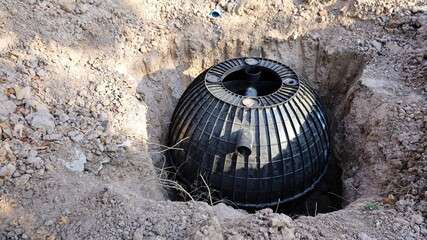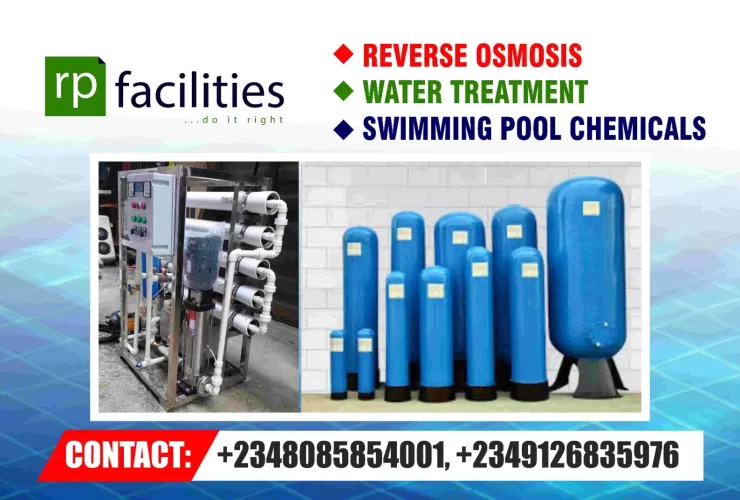Wastewater Management for Nigeria
Wastewater management is a critical aspect of public health and environmental sustainability, especially in a rapidly developing nation like Nigeria. As the population continues to grow and urbanize, the demand for effective wastewater management systems has never been higher. Despite this urgent need, Nigeria faces significant challenges in managing its wastewater effectively. This article will explore the current state of wastewater management in Nigeria, highlight the challenges, and propose opportunities for improvement, all while drawing on global best practices.
Importance of Wastewater Management in Nigeria
Wastewater management plays a crucial role in safeguarding public health, protecting water resources, and ensuring environmental sustainability. In Nigeria, where access to clean water and sanitation remains a significant challenge, proper wastewater management is essential to prevent the spread of waterborne diseases and environmental degradation. Efficient wastewater management systems can also contribute to economic development by providing opportunities for resource recovery, such as biogas production and water reuse.
Current State of Wastewater Management in Nigeria
Statistics on Wastewater Production and Treatment
Nigeria, with a population exceeding 200 million, produces vast amounts of wastewater daily. However, the country’s capacity to treat this wastewater is severely limited. According to recent estimates, less than 10% of the country’s wastewater is treated before being discharged into the environment. This untreated wastewater often finds its way into rivers, lakes, and oceans, leading to severe pollution and health risks.
Urban vs. Rural Wastewater Management
The disparity between urban and rural wastewater management in Nigeria is stark. In urban areas like Lagos and Abuja, the rapid pace of urbanization has outstripped the capacity of existing wastewater treatment infrastructure. Many urban centers lack the necessary facilities to manage the volume of wastewater generated, leading to frequent overflows and untreated discharges.
In contrast, rural areas often rely on more rudimentary forms of wastewater management, such as pit latrines and open defecation, due to the lack of formal infrastructure. The absence of proper sanitation facilities in rural areas exacerbates the public health risks associated with untreated wastewater.
Challenges Faced in Wastewater Management in Nigeria
Inadequate Infrastructure and Funding
One of the most significant challenges facing wastewater management in Nigeria is the lack of adequate infrastructure. Many wastewater treatment plants in Nigeria are outdated, poorly maintained, or operating well below capacity. The lack of investment in new facilities and the rehabilitation of existing ones has left many communities without access to proper wastewater treatment.
Funding is another critical issue. Wastewater management projects require significant capital investment, but funding from both the government and private sector has been insufficient. Without adequate financial resources, it is challenging to build, maintain, and operate the necessary infrastructure to treat wastewater effectively.
High Rates of Untreated Wastewater Discharge
Due to the inadequate infrastructure, a significant portion of Nigeria’s wastewater remains untreated. This untreated wastewater is often discharged directly into the environment, contaminating water bodies and posing severe risks to public health. The high rates of untreated wastewater discharge also contribute to the degradation of aquatic ecosystems, reducing biodiversity and the quality of water resources.
Opportunities for Improvement in Wastewater Management
Investment in Sustainable Technologies
To address the challenges of wastewater management in Nigeria, there is a pressing need to invest in sustainable technologies. Advanced treatment technologies, such as anaerobic and aerobic biological processes, can significantly improve the efficiency of wastewater treatment plants. Biodigester systems, for example, offer a low-cost, sustainable solution for treating wastewater in both urban and rural settings. These systems not only treat wastewater effectively but also produce biogas, which can be used as a renewable energy source.
Additionally, there is a growing need to adopt decentralized wastewater treatment systems, especially in rural areas where centralized infrastructure may not be feasible. These systems can be tailored to the specific needs of communities, providing a more flexible and cost-effective solution for managing wastewater.
Community Awareness and Education Initiatives
While technological advancements are essential, they must be complemented by efforts to raise community awareness and education on wastewater management. Public engagement is crucial in promoting sustainable practices and ensuring the success of wastewater management initiatives.
Educational programs that focus on the importance of proper wastewater management, water conservation, and hygiene can empower communities to take an active role in protecting their environment. By fostering a culture of sustainability, Nigeria can build the foundation for long-term improvements in wastewater management.
Case Studies
Successful Wastewater Management Projects in Nigeria
Several wastewater management projects in Nigeria have demonstrated the potential for success when there is a commitment to sustainable practices and community involvement. For instance, Lagos State’s efforts in collaboration with private sectors to introduce modern and expanded wastewater treatment infrastructure in residential estates and large corporate facilities have shown promising results in improving water quality and reducing pollution.
Another successful project is the implementation of biodigester systems in both urban and rural communities across Nigeria. These systems have provided a sustainable solution for managing wastewater while also generating biogas for cooking and heating. The success of these projects underscores the importance of investing in appropriate technologies and engaging local communities.
Lessons Learned from International Best Practices
Nigeria can also learn from international best practices in wastewater management. Countries like Singapore and Israel have developed highly efficient wastewater treatment systems that emphasize water reuse and resource recovery. These countries have demonstrated that with the right policies, technologies, and community engagement, it is possible to achieve near-total wastewater treatment and reuse.
Adopting similar approaches in Nigeria, such as integrating water reuse into the national water policy and encouraging public-private partnerships, could significantly enhance the country’s wastewater management capabilities.
Conclusion
The need for a comprehensive strategy for wastewater management in Nigeria cannot be overstated. As the country continues to urbanize and develop, the challenges of managing wastewater will only grow more complex. However, with the right investments in infrastructure, technology, and community engagement, Nigeria has the potential to transform its wastewater management practices and protect its environment for future generations.
Call to Action: It is imperative for all stakeholders, including government agencies, private sector players, and civil society organizations, to collaborate in addressing the challenges of wastewater management. By adopting sustainable practices and investing in innovative solutions, we can create a cleaner, healthier, and more sustainable future for Nigeria.
For more information on how RP Facilities Ltd is contributing to improved wastewater management in Nigeria, or to discuss how we can assist with your wastewater treatment needs, please contact us today.



